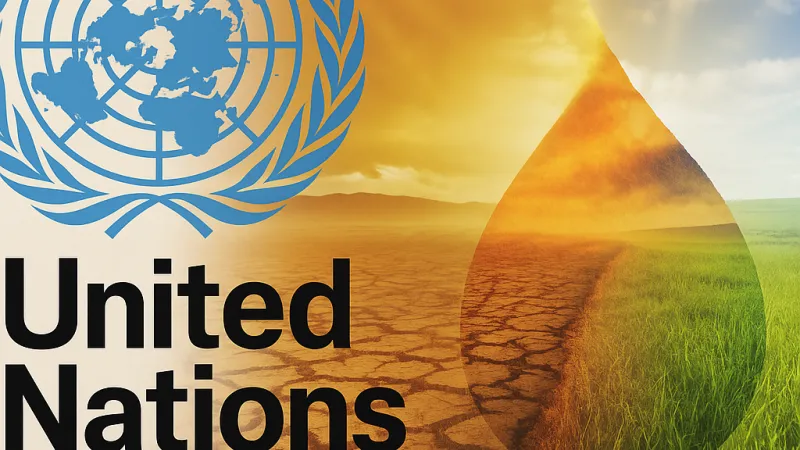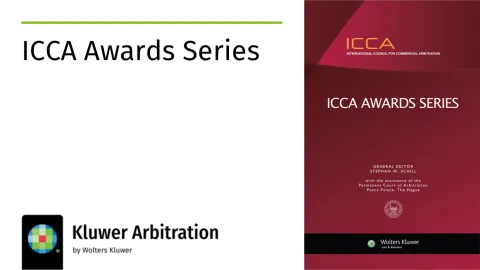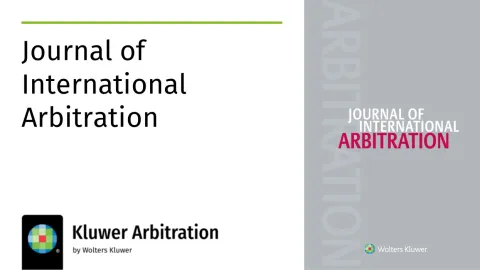Time for UNCITRAL Notes on Dispute Settlement and Climate Change?
November 27, 2025
The United Nations Commission on International Trade Law (“UNCITRAL”) has a strong track record of adopting explanatory texts in the international trade law sphere. Using the experience from the Notes on Organizing Arbitral Proceedings (“Notes”), UNCITRAL member states could jointly develop a procedural support system which may enable a positive contribution from the international arbitration community in the climate crisis.
Building on the ICJ Advisory Opinion
In July 2025, the International Court of Justice delivered its Advisory Opinion on Obligations of States in Respect of Climate Change (“Advisory Opinion”). In the Advisory Opinion, the Court lays out the obligations of states in respect of climate change and addresses the legal consequences arising from states’ acts and omissions that cause a significant harm to the climate system and other parts of the environment. The Advisory Opinion includes an overview of the international law of relevance for climate change, which reaches beyond the realms of the climate change treaty framework. It also recognizes the key scientific findings of the Intergovernmental Panel of Climate Change (“IPCC”), stating that “it is scientifically established that the climate system has undergone widespread and rapid changes, including, in particular, an increase in global surface temperatures, or global warming” and that “the increase in concentration of [Greenhouse Gases] in the atmosphere is primarily due to human activities” (para. 72).
As arbitration lawyers, how can we contribute? Personally, I am a strong believer in focusing on the details. Taking concrete steps in matters which relate to our daily practice, and being a voice for climate change mitigation or adaptation initiatives in the fora where we act. And maybe this could be done through an UNCITRAL Notes on Dispute Settlement and Climate Change?
A Successful Model
The first edition of the Notes on Organizing Arbitral Proceedings was adopted by UNCITRAL in 1996. A second edition was finalized by UNCITRAL and adopted by the United Nations General Assembly in 2016 (“2016 Notes”). In 2023, a Notes on early dismissal and preliminary determination was added to the 2016 edition.
As stated in the 2016 Notes (with 2023 additions), they are informal and “intended to be used in a general and universal manner.” They do not seek to “promote any practice as best practice” but rather address issues of relevance to the organization of arbitral proceedings in a general and universal manner.
The Notes thus are non-binding and characterized by flexibility. They should not be treated as rules. Paragraph 3 summarizes the intent: “[t]he parties and the arbitral tribunal may use or refer to the Notes at their discretion and to the extent they see fit and need not adopt or provide reasons for not adopting any particular element of the Notes.”
The informal and flexible approach has contributed to the value vested in the Notes by the international arbitration community. Prior to the 2016 update, the Notes were described as “a key resource for parties in arbitration and arbitration practitioners” by one commentator. Subsequent commentaries have pointed out that “the intended, broad scope of application of the UNCITRAL Notes to arbitral proceedings, even those not conducted under the UNCITRAL Arbitration Rules, remained uncontested” and that the Notes are “a natural part of the international arbitration landscape.”
Today, the Notes serve as a guidance on what to expect in an arbitral proceeding. Their adoption by UNCITRAL has built its legitimacy. It has contributed to a strong recognition of the practice and procedures of international arbitration.
Drafting an Explanatory Text for the Future
Has the time come for UNCITRAL to develop Notes for UNCITRAL Dispute Settlement and Climate Change? Participants at 2024 UNCITRAL Colloquium on the Law of International Trade for a Greener Future appear to think so. The Report from the colloquium notes that the proposal to draft Notes on UNCITRAL Dispute Settlement and Climate Change “received widespread support, […] as guidance addressing the cross-cutting issues that could arise in cases with climate change-related components, with the aim of encouraging a climate-conscious approach among stakeholders” (para. 30).
If UNCITRAL member states decide to develop a Notes on UNCITRAL Dispute Settlement and Climate Change, what could the mandate look like? What would its’ focus be?
Climate change elements in international commercial disputes come in many shapes and forms. Adding investment arbitration to the matrix expands the perspectives even further. Any recommendations on specific considerations to be taken for this wide range of disputes therefore would need to be very general. This however aligns with the very trademark of the UNCITRAL Notes as a rule; non-binding guidelines which aim to support actors of international arbitration on generic matters.
Future Disputes and Climate Change
But why a separate UNCITRAL Notes for Dispute Settlement and Climate Change? It could be argued that many dispute categories carry their own distinct characteristics, without motivating a separate set of UNCITRAL Notes. However, arbitration cases associated with climate change mitigation and adaption efforts have certain inherent features which set them apart from other cases; features which may trigger special attention.
Climate change is an omnipresent issue with cross-societal influence at national, regional or international level. It is universal. Climate change mitigation and adaptation implications also adds a certain level of urgency in the dispute, almost regardless of the dispute’s factual origin or context. A tool raising awareness and targeting effectiveness in this very category of disputes therefore potentially could carry extra weight.
In short, a separate UNCITRAL Notes on Dispute Settlement and Climate Change would spotlight the potential climate change element of disputes, and, as noted in the report from the 2024 UNCITRAL colloquium, support a climate-conscious approach in international disputes. It would also reflect the fact that disputes with climate change mitigation and adaptation implications may include interests beyond those of the immediate parties to the disputes.
Ideas on Content for the New UNCITRAL Notes
What then would be the key elements of any UNCITRAL Notes on Dispute Settlement and Climate Change? While the mandate would ultimately be decided by the UNCITRAL Commission and its member states, here are a few ideas.
First, it may be useful to point out what a Notes on Dispute Settlement and Climate Change would not do. It would not be expected to advocate for certain solutions or answers to the many complex issues that could arise on climate change-related setting of a dispute. This is important. Although at this point science is quite clear on the cause of climate change and its effects, for example, through the IPCC reports as referenced by the International Court of Justice in its Advisory Opinion, there is still much room for debate in this space.
Neither would a future UNCITRAL Notes on Dispute Settlement and Climate Change need to include procedural guidance to reduce the carbon footprint of arbitration. Well-recognized recommendations on this topic are already available, including through the Campaign for Greener Arbitration and the Green Pledge, which currently has more than 1,600 supporters across law firms, arbitral institutions, and other service providers in international arbitration.
Instead, an UNCITRAL Notes on Dispute Settlement and Climate Change would highlight and focus on procedural issues of potential relevance for parties and tribunals who find themselves involved in - what may turn out to be - a dispute with climate change mitigation or adaptation implications, and support parties and tribunals in their procedural decision-making where these elements may come into play.
A first key objective of this Notes would be to assist the parties to identify the climate change element. This is likely to be embedded in a wide range of substantive issues. Energy projects, physical risks as a consequence of a changing climate having materialized, the deployment of new technologies, and in the trial and error of new policies. The list could go on. Climate change disputes may also be centered around adaptation measures, in projects relating to infrastructure and land use, or in measures for the protection against extreme weather events.
Claims for compensation and insurability represents another category of substantive issues which may be closely associated with the effects of climate change, and which are expected to increase ahead. As highlighted during the 2025 World Economic Forum, the frequency and intensity of events like floods, heatwaves and storms have increased exponentially in recent decades, testing the viability of insurance models and, eventually, entire industries. Disputes are likely to follow.
Having outlined the scenarios at the core of climate change mitigation and adaptation which may materialize in disputes, the second key objective of a potential Notes on Dispute Settlement and Climate Change would be to provide an overview of issues of possible procedural relevance when managing and deciding these cases.
Let’s once again be reminded of the non-binding character of any UNCITRAL Notes. The Notes would serve only as guidance, with full flexibility for the parties and the tribunal in the case at hand. Returning to the language of the Notes on Organizing Arbitral Proceedings, any Notes on Dispute Settlement and Climate Change would be for the parties and the arbitral tribunal to use or refer to “at their discretion and to the extent they see fit”. Parties and the tribunal are not expected to “adopt or provide reasons for not adopting any particular element of the Notes”.
A Potential Shortlist
A potential list of relevant issues could indicatively include:
· Procedural options prompted by the climate change element of the case. As noted during UNCITRAL Colloquium on Climate Change and the Law of International Trade in 2023, mediation may be particularly suitable in a climate change setting.
· Procedures for expert evidence and inclusion of best available science.
· Discussions on principles of burden of proof and attribution, addressed through a climate change lens.
· Applicable law and the potential influence of the climate change specifics of the case.
· Factors of relevance for decisions on damages in a climate transition setting.
In summary, an UNCITRAL Notes on Dispute Settlement and Climate Change which (and here once again borrowing the language of the existing UNICTRAL Notes on Organizing Arbitral Proceedings) “lists and briefly describe matters relevant to” climate change disputes, would highlight how arbitration cases with an alignment to climate change mitigation or adaptation may make a difference.
Let’s encourage UNCITRAL member states to find consensus for a mandate to explore this idea at the 59th Commission session in New York next year. To use words of the International Court of Justice in its Advisory Opinion: “Climate Change is a common concern. Co-operation is not a matter of choice for States but a pressing need and a legal obligation” (para. 308).
You may also like











